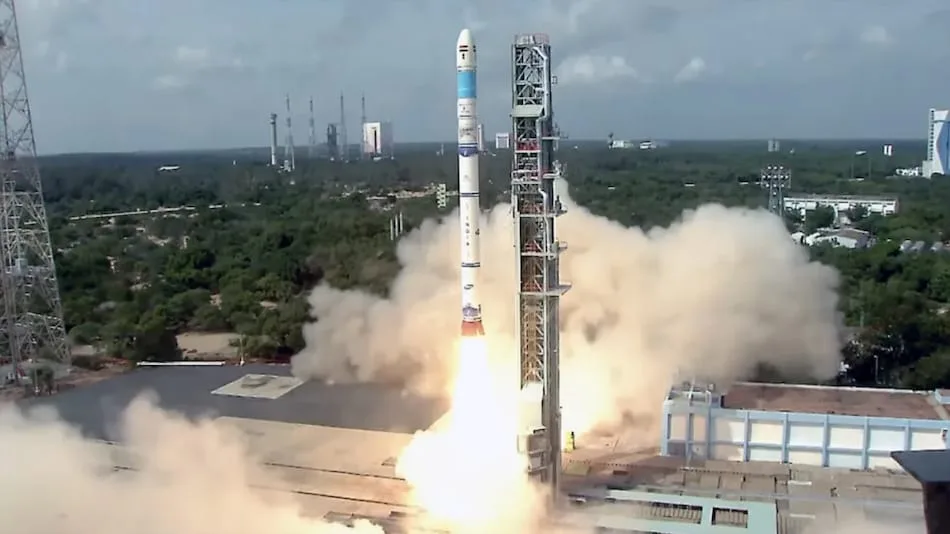Table of Contents
ISRO Launches EOS-08 Earth-Observing Satellite, Marks Third Successful Mission for SSLV
India's SSLV rocket successfully launched the EOS-08 Earth-observing satellite, marking its third mission.

Photo Credit: ISRO
This marks the third successful launch atop ISRO's SSLV
Highlights
- ISRO launches EOS-08 on SSLV’s third mission, successfully reaches orbit
- EOS-08 to enhance surveillance, disaster monitoring, and observation
- EOS-08 has been deployed in an orbit at an altitude of 475km
Indian Space Research Organisation (ISRO) achieved another milestone with the successful launch of the EOS-08 Earth-observing satellite on Friday. The satellite was launched aboard the Small Satellite Launch Vehicle (SSLV) from the Satish Dhawan Space Centre at 9:17am IST on August 16. This launch marks the third mission for the SSLV, a relatively new addition to India’s fleet of rockets, designed specifically for deploying small satellites into low Earth orbit.
SSLV's Journey: From Initial Challenges to Success
The successful deployment comes after the SSLV-D3 suffered an early setback with an older EOS-02 satellite in its debut flight in August 2022. At the time, the mission failed when the rocket deployed the observing satellite, and a student-built cubesat, into incorrect orbits, lead to its premature return to Earth. However, ISRO quickly addressed these issues, and the SSLV's second flight in February 2023 was a success, with the rocket deploying three payloads into their designated orbits.
SSLV-D3/EOS-08 Mission
Tracking images 📸 pic.twitter.com/1TSVx19ZDk— ISRO (@isro) August 16, 2024
In its third mission, the SSLV carried the EOS-08 satellite, a 175.5 kg spacecraft, into a 475 km circular orbit. EOS-08 is equipped with the Electro-Optical Infrared (EOIR) payload and the Global Navigation Satellite System-Reflectometry (GNSS-R) payload. The EOIR is designed to provide vital infrared data for various applications, including satellite-based surveillance, disaster monitoring, and environmental observation. Meanwhile, the GNSS-R will demonstrate innovative techniques for detecting floods, assessing soil moisture, and analyzing oceanic winds using reflected satellite navigation signals.
EOS-08's Role and Future Impact
EOS-08 is expected to operate for one year, during which it will deliver essential data to support a range of Earth-observation applications. Additionally, it carries an ultraviolet-light dosimeter to help characterize space radiation, an important factor for India's upcoming Gaganyaan mission, the country's first crewed spaceflight scheduled for 2025.
- Wildfires Continue Emitting Carbon Dioxide Long After They Die
- Climate Change Linked to Wayanad Landslides, Reveals Study
- Parker Solar Probe Reveals New Clues to the Sun’s Mysterious Heating
This mission not only contributes to immediate scientific objectives but also lays the groundwork for future advancements in satellite technology and space exploration, reinforcing India's growing role in global space initiatives.

